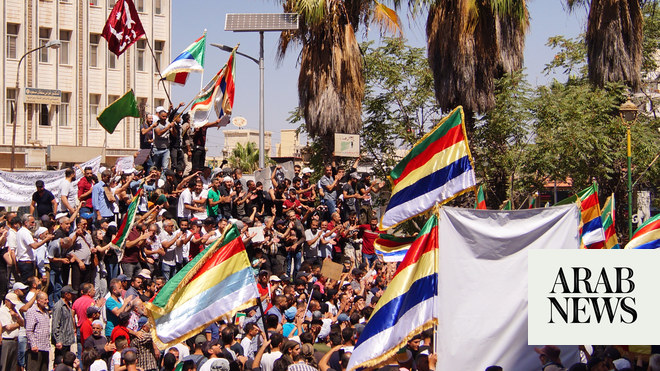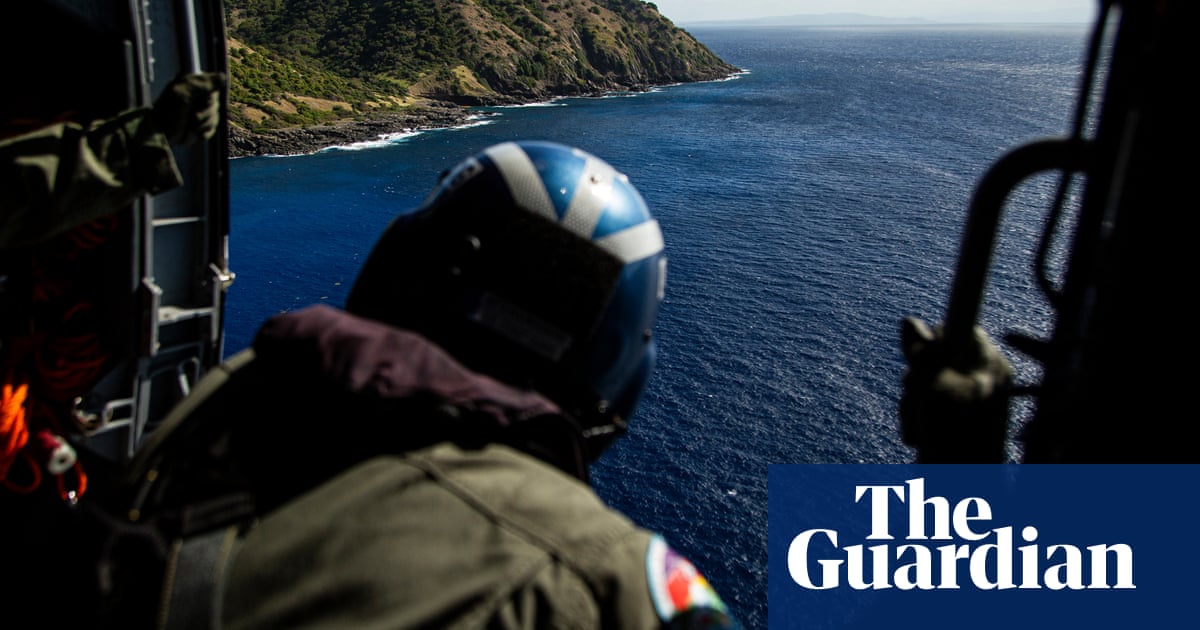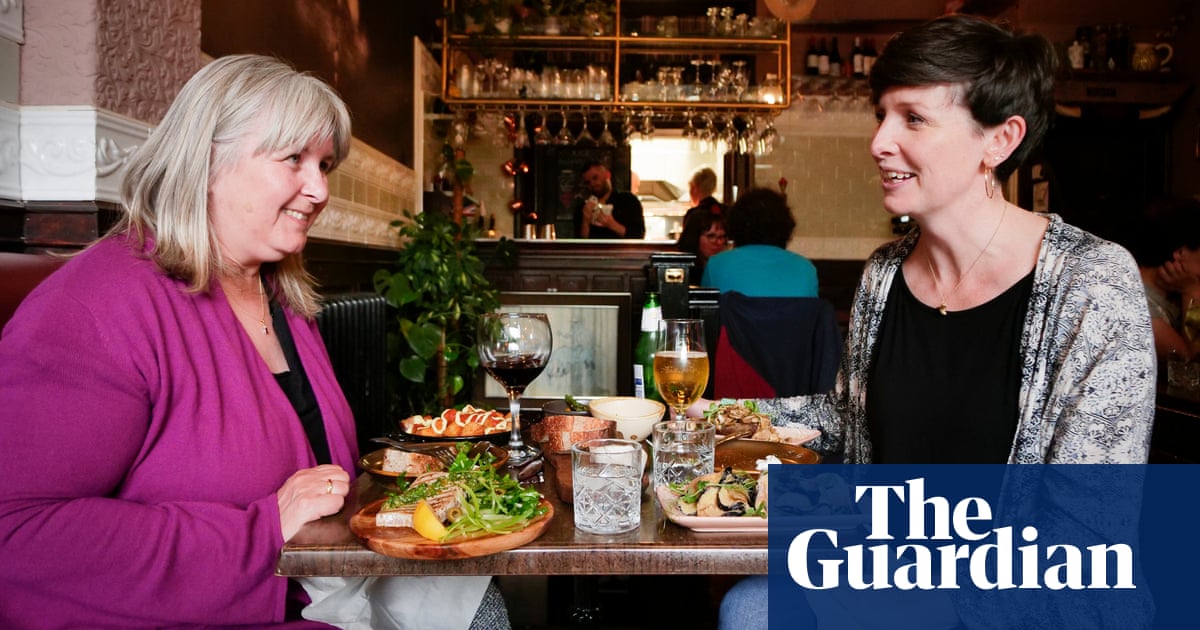
At 7am on a clear day in Algiers, Nouara looks out of her window to the narrow street below that leads to the market, and declares: “I can’t stand living here any more.”
Nouara, 65, wants nothing more than to leave her country, and is now considering boarding one of the boats that carry migrants on the often deadly crossing over the Mediterranean to Spain. “I’ve lost the tiny hope I had in this country,” she says.
Nouara, who preferred not to give her full name, lost her husband, Foudhil, to Covid in 2020. He was one of more than 6,800 Algerians reported to have died so far.
“Despite his advanced age, he was a man in good condition – healthy and active,” she says. “He died overnight, after a drastic lack of oxygen.”
Nouara is struggling. The antique wooden table in her living room is covered in papers: visa application forms and copies of her birth certificate.
The couple had no children, but Foudhil had some from a previous marriage. “My husband’s children cut off his retirement allowance and I am now living on crumbs. If my visa application to France gets rejected, I will sell this small apartment and board the speedboat.
“I know it is illegal and unsafe,” she says. “But I am seeking a decent place where I can spend what remains of my life in dignity.”
According to the Spanish authorities, at least 10,000 Algerians reached the Spanish coast this way between January and December 2021 – 20% higher than the previous year. Most depart from the western coast, from cities including Oran, Chlef and Maghnia, mainly in summer when the sea is calmer. The shortest distance between Algeria and the Spanish coast – Oran to Almeria – is 150km (90 miles).
Smugglers charge between €2,000 (£1,670) and €7,000 for one person. The higher the price, the bigger the engine and quicker the crossing, which can take from three hours to three days.
El Harga means “the burning”, describing the act many illegal travellers go through of setting fire to their identity papers to stay anonymous and avoid repatriation if they get arrested in Europe.
The pace of illegal migration has intensified recently, despite a 2009 law that can impose six-month jail terms on those arrested by the coastguard. Smugglers can get up to five years.
In response to the soaring numbers, the Algerian government established the National Assembly for Raising Youth Awareness on the Dangers of Illegal Migration (ANSJIC) in 2018, to seek measures to solve the problem. More than 20 national organisations, officials from the interior ministry, local authorities and experts have participated.
The ANSJIC, which has run meetings and workshops along some coastal cities to persuade people not to risk their lives, is considered a pioneering organisation.
“The aim is to raise awareness about the danger of El Harga, and preserve the country’s human resources,” said Samir Zoulikha, president of ANSJIC. “We are involving schools, mosques, sport clubs and families.”
Nabil, who prefers to use one name, is also considering El Harga. He failed to find a job in his field after graduating from the National Institute of Marine Sciences and Coastal Development and makes a living by doing odd jobs. “I spent four years applying for different employment, without any success,” says Nabil, now in his 30s.
“I started losing hope when I saw some university colleagues holding positions in some important institutions and bumped into the sad reality that I am not a descendant of a senior official.”
His despair is clear. “The ambitions I had for coastal development have melted away. I was fascinated by the sea and its enigmas.
“My mother needs money for dialysis,” he adds. “But I can see no future here; El Harga is my only route to shape a good future for me and my family.”
Zoulikha has persuaded Nabil is to take part in an ANSJIC conference aiming “to train young volunteers on the proper ways to approach people who are considering fleeing the country illegally, not only to raise awareness of the dangers but to listen to their concerns and offer solutions,” he says.
“His attendance would give the conference a new dimension,” says Zoulikha. “The previous meetings were mainly addressed to civil society and authorities. A face-to-face dialogue between officials and youths might lead to practical and tangible solutions.”
Nouara has a visa appointment at the French embassy. She is excited. “I am planning to head to Belgium after landing in France. My cousin offered to let me stay in her house there. I will try to find a job or at least volunteer at any civil society organisation. I can help with the skills I acquired as a teacher.”
But France has recently decided to halve the number of visas it grants to people from Algeria, Morocco and Tunisia, because of the north African governments’ refusal to take back illegal migrants.
“If plan A doesn’t work, illegal migration will be my last refuge,” says Nouara.
Zineb Bettayeb is an Algerian IT specialist and a former cultural journalist












